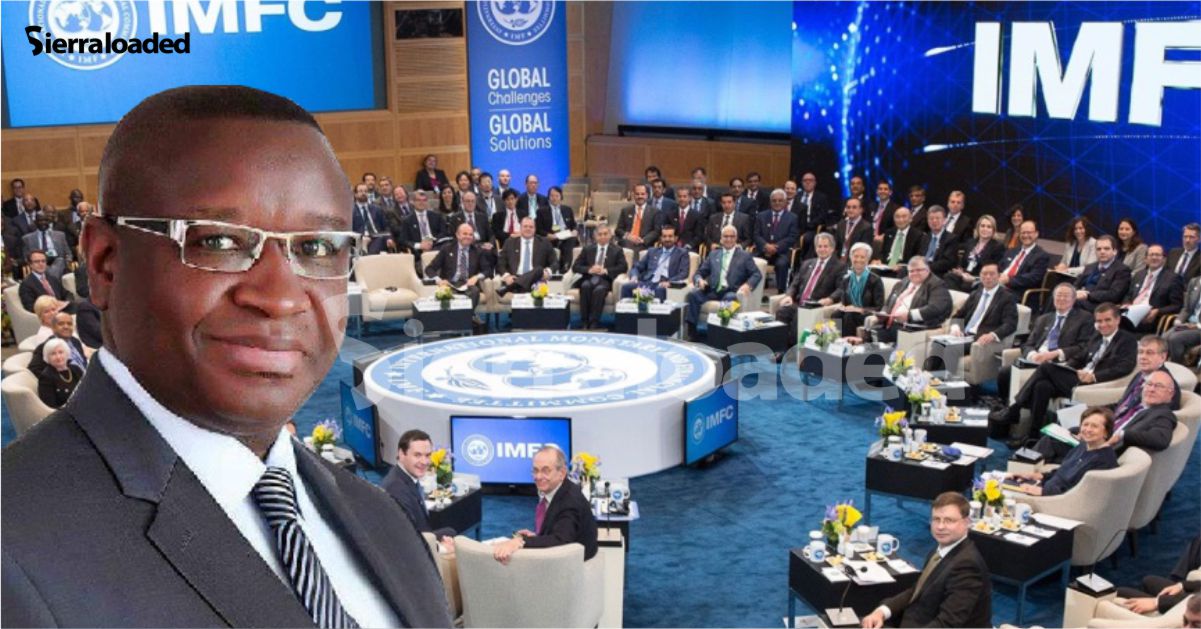The International Monetary Fund (IMF) has warned Sierra Leone and other African countries of the possibility hunger-related social unrests ahead, as a direct consequence of Russia’s invasion of Ukraine.
This was contained in its Sub-Saharan Africa Regional Economic Outlook released in Washington DC, United states of America, yesterday.
Africa is said to depend on Russia and Ukraine for about 50 percent of its wheat import.
The Director, African Department, Mr. Abebe Selassie who virtually briefed the press said, “Food price increases will hurt the most vulnerable and may add to social tensions, particularly in fragile and conflict-affected states. Food security is already a critical issue across the Sahel
“Finally, this is a crisis on top of another crisis, of course, one which threatens to compound some of the region’s most pressing policy challenges, including the pandemics social and economic legacy, heightened security risks, particularly in the Sahel countries and tightening monetary policy conditions in advanced economies, in response to rising global inflation.”
The Fund said that the Russian invasion of Ukraine has adversely affected the entire global economy, with commodity prices raising inflation trends across the world.
According to the report, “The commodity price shock following the Russian invasion of Ukraine has stalled the positive momentum in the region’s economic recovery, with aggregate growth for 2022 expected to soften to 3.8 percent.”
Mr. Selassie, who briefed the press on the outlook noted that African policy makers faced challenges of high inflation, rising debt , as well as, hunger-related social unrests and must act fast to address them, though noting that there was little room to maneuver.
The Regional Economic Outlook was produced in a very complicated context, according to him, adding, “We have the war in Ukraine, the everlasting pandemic, increased inflation and of course, climate change. The report is titled: New shock with little room to maneuver. “
The director noted that at the start of 2022, and even a little after, in this third year of the pandemic, it looked like Sub-Sahara African countries were beginning to recover from the very difficult economic conditions they had encountered in 2020 and 2021 but that unfortunately, most countries in the region were facing a major setback.
He said, “This follows Of course, the Russian invasion of Ukraine, which has affected global commodity markets, and it represents a significant setback to the global economy and more so for most Sub Saharan African countries.
“This latest crisis will be quite consequential for most vulnerable people in the most vulnerable countries in Sub Saharan Africa. The invasion has triggered of course a global economic shock that is hitting the region at the most difficult time, one in which many countries remaining policy space has been significantly depleted.
“Most directly, several countries are highly dependent on wheat imports. With some sourcing a large proportion of the imports directly from Ukraine and Russia are going to be impacted as well. Higher fertilizer and oil prices will also increase the cost of harvesting, the cost of production and provision of goods and services and erode the living standards quite a bit in many countries.
“Surging oil and food prices are straining external and fiscal balances of many commodity importing countries, exacerbating regional inflation pressures.”
Worst inflation since 2008
According to him, Sub-Saharan Africa now faced the highest inflation since 2008, with very high food prices, increased food security concerns across the continent which would hurt all segments of the population.
Policy options
On policy before African governments, the director said, “I want to stress that the COVID pandemic is still a concern, and countries need to advance vaccination campaigns to contain the ris











